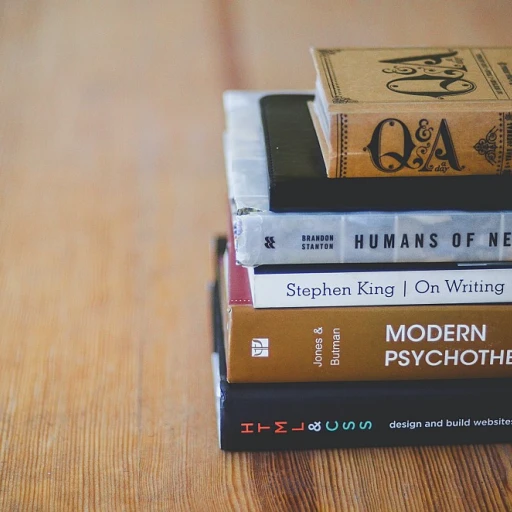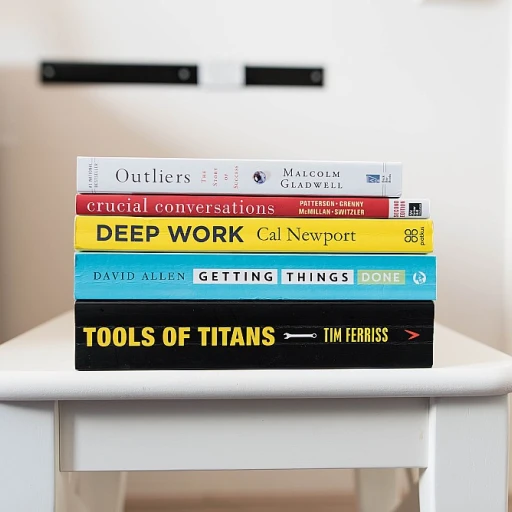
Understanding AI in Recruitment
The Role of Artificial Intelligence in Modern Recruitment
Artificial intelligence (AI) has revolutionized many aspects of our lives, and its impact on recruitment is no exception. The integration of AI into the hiring process is enhancing efficiency and accuracy, helping companies to identify the best candidates for a given job title with ease. AI tools such as the recommendation generator are proving invaluable in simplifying once complex tasks, offering both free letter generation and high-quality, personalized letters. When it comes to recruitment, various AI-powered applications streamline tasks by automating routine activities such as writing letters and generating content. The ability of AI to analyze vast data pools helps it to identify patterns, thus equipping it to create professional and grammatically correct written content tailored to specific job requirements. AI's advent in recruitment extends beyond simplifying tasks—it's about bringing more precision to the processes involved. Using a recommendation letter generator, hiring professionals can craft tailored recommendations that cater to the unique qualifications of applicants, ensuring the content is always relevant and impactful. AI applications facilitate the creation of great recommendation letters, combining both efficiency and personalization. These AI tools are programmed to generate well-written letters that align with the unique profile of each candidate, thereby enhancing the likelihood of securing job offers for candidates. For everyone involved in hiring, leveraging AI not only improves the quality of the letters recommendation but also ensures that the selection processes are grounded in data-driven insights. This results in a more objective and fair evaluation of candidates. To learn more about how AI platforms are transforming job searches, check out our top AI platforms to streamline your job search.The Evolution of Letters of Recommendation
The Shift from Traditional to AI-Enhanced Recommendations
The traditional letter of recommendation has long been a cornerstone in hiring processes, relying heavily on personal endorsements to vouch for a candidate's suitability. However, as recruitment evolves, there's a growing shift towards incorporating technology to enhance these letters for better accuracy and efficiency. This change is not about discarding the tried-and-tested methods but rather refining them to meet modern-day demands.
Technology and artificial intelligence (AI) have begun to transform the recruitment landscape significantly, offering advanced tools to refine the content of recommendation letters. These advancements help create more targeted and relevant recommendations, allowing recruiters to make informed hiring decisions.
How Letters of Recommendation Have Been Traditionally Used
Letters of recommendation have traditionally been offered by previous employers or academic mentors, highlighting the skills and experiences relevant to the job title at hand. They were once meticulously written pieces crafted to make the candidate stand out. However, the process of crafting a high-quality, grammatically correct letter can be time-consuming and burdensome, often prone to human biases and inconsistency.
Tackling Inconsistencies with AI
AI-driven technologies, such as a recommendation generator, have been developed to address these inconsistencies. By analyzing patterns and pulling relevant data from various sources, these tools can generate easy, well-structured personalized letters. Whether it's a cover letter, reference letter, or offer letter, AI can help create professional, consistent content that reflects a comprehensive view of a candidate's qualifications.
The use of an AI program, or recommendation generator, ensures letters are generated in a manner that's both efficient and error-free. This shift allows recruiters to focus on more strategic aspects of the hiring process without sacrificing the quality of the written content.
For more insights into how advanced technologies are enhancing recruitment, explore this article on enhancing recruitment with advanced candidate matching. It provides a deeper understanding of the tools shaping today's recruitment strategies.
How AI Generates Letters of Recommendation
Empowering Letters of Recommendation with AI
When it comes to generating letters of recommendation, the integration of artificial intelligence has brought about significant changes in how these documents are crafted. AI has introduced a level of precision and automation that streamlines the writing process, offering solutions that are both time-saving and effective. Understanding the methodology behind AI-generated letters is crucial. These recommendation tools utilize sophisticated algorithms to analyze the traits, skills, and work history of a candidate. The program leverages data inputs and machine learning to generate personalized letters that are accurate and relevant to the job title in question. By doing so, they ensure that the written content is not only professional but also high quality, often surpassing traditional letters recommendation in terms of depth and insight. The recommendation generator acts much like a seasoned writer, capable of producing grammatically correct and well-structured content. It can generate tailored reference letters and cover letters that highlight specific achievements and qualifications of an individual. What's more, these generators can adapt the tone and formality of the letter to suit the context, whether it's a formal job application or an informal request for a recommendation. By utilizing an AI-based letter generator, companies and individuals can create professional recommendation letters with ease. The AI can write these letters swiftly, ensuring they are relevant and maintain a level of personalization that is often missing in free letter templates. In addition to being a great tool for creating recommendation letters, these AI systems supplement the broader AI recruiting ecosystem, which includes other innovations like AI-powered recruitment chatbots. This synergy demonstrates the powerful capabilities of artificial intelligence in enhancing not just the recommendation process but the hiring process as a whole.Benefits of AI-Powered Recommendations
Advantages of AI-Powered Recommendations in Recruitment
Artificial intelligence is transforming how recommendations are generated, offering notable benefits for hiring processes. Below are some advantages of leveraging AI-powered recommendation letters in recruitment:- Efficiency and Speed: AI tools allow for rapid creation of recommendation letters. Using a letter generator, recruiters can quickly produce tailored letters that would normally require significant time and effort if manually written. This efficiency facilitates swifter hiring and a smoother recruitment workflow.
- Consistency and Accuracy: Human writers may unknowingly introduce inconsistencies across multiple letters or forget crucial elements of a candidate’s qualifications. AI programs guarantee consistent structure and content. They ensure that each letter is grammatically correct and includes relevant information about the job title and candidate.
- Customization and Personalization: AI-generated letters are not generic. They are finely tailored to reflect individual strengths and job requirements. The use of advanced algorithms enables the creation of personalized letters, enhancing the perceived authenticity and value of each recommendation.
- Quality of Content: With AI assistance, you ensure that the written content is of high quality, free from errors, and professional in tone. The tools create professional, easy-to-read letters that maintain a level of formality necessary for effective communication in hiring processes.
- Scalability: For organizations handling large volumes of applications, AI offers scalable solutions. It can generate hundreds of recommendation letters without compromising on quality, which is instrumental for companies with extensive hiring requirements.
Challenges and Ethical Considerations
Considering the Ethical Dimensions and Overcoming Challenges
AI-driven systems that create recommendations are proving to be highly effective tools. However, they also present a suite of challenges as well as ethical considerations that warrant attention. Addressing these issues is crucial to harnessing the full potential of AI-generated letters. One of the primary concerns involves data privacy and security. As artificial intelligence programs work by processing large amounts of personal data to generate personalized letters, there is a pressing need to ensure that this information is handled with the utmost care. Organizations must implement robust security protocols to prevent unauthorized access and data breaches. Another challenge lies in ensuring fairness and impartiality. An AI recommendation generator leverages algorithms that, if not carefully crafted, can inadvertently perpetuate biases found in the data they learn from. It’s critical for developers and hiring managers to regularly audit these systems. Ensuring that the written content is not biased towards specific demographics is imperative in creating professional and fair recommendation letters. High-quality recommendations are also contingent on grammatically correct, easy-to-understand writing. AI tools are generally able to produce grammatically correct content, but occasional lapses may occur. Thus, frequent evaluations by professional human editors reinforce the quality and reliability of these AI-generated letters. Finally, there is an ongoing debate about the ethical implications of replacing human judgment with AI. While AI tools can offer great efficiency, they should supplement, rather than supplant, human decision-making processes. Human oversight ensures that cover letters and reference letters retain their intended professional essence and integrity. By proactively addressing these challenges, we can ensure that AI-driven letters of recommendation become a reliable and trusted component in the recruitment process.Future Trends in AI and Recruitment
The Shift Towards Advanced AI Tools in Recruitment
As the recruitment landscape continues to evolve, the integration of AI tools in various stages of hiring processes is expected to grow exponentially. This growth is fueled by the increasing need for more personalized and efficient recruitment strategies. The use of AI-powered letters of recommendation represents a significant milestone in this shift, providing recruiters with high-quality, tailored written content that aligns with specific job titles and requirements.
AI capabilities in generating recommendation letters are only just beginning to be explored. These recommendation generators not only automate the creation of letters but also ensure that the tone, style, and content are both professional and grammatically correct. This level of personalization and high quality is critical in today's competitive job market, where well-crafted letters can make all the difference in a candidate's success.
Adapting to Technological Changes
Recruiters and HR professionals must stay ahead of technological trends to capitalize on the benefits AI tools offer. Continuous advancements in AI will likely lead to more sophisticated programs that can create even more refined letters. Such innovations are expected to enhance not only the quality of written recommendations but also the accuracy with which they reflect a candidate's potential fit for a role.
While these tools can help streamline recruitment practices, they also raise ethical considerations that need addressing. Ensuring transparency and fairness in AI program deployment is crucial. As technology progresses, developing policies and standards to guide its use responsibly will be paramount.
Looking Forward
Future trends in AI and recruitment point to an enriching synergy between human expertise and machine efficiency. AI will likely play a stronger role in generating not just recommendation letters, but also offer letters, cover letters, and reference letters. The future is slated to involve more AI tools that can generate letters professionally tailored to the dynamics of specific industries.
The horizon holds promising potential for AI-driven recruitment strategies that are both efficient and ethically sound. Organizations willing to embrace these changes are likely to see improvements in their recruitment outcomes, securing candidates better suited for their roles through high-quality, personalized AI-generated letters.













